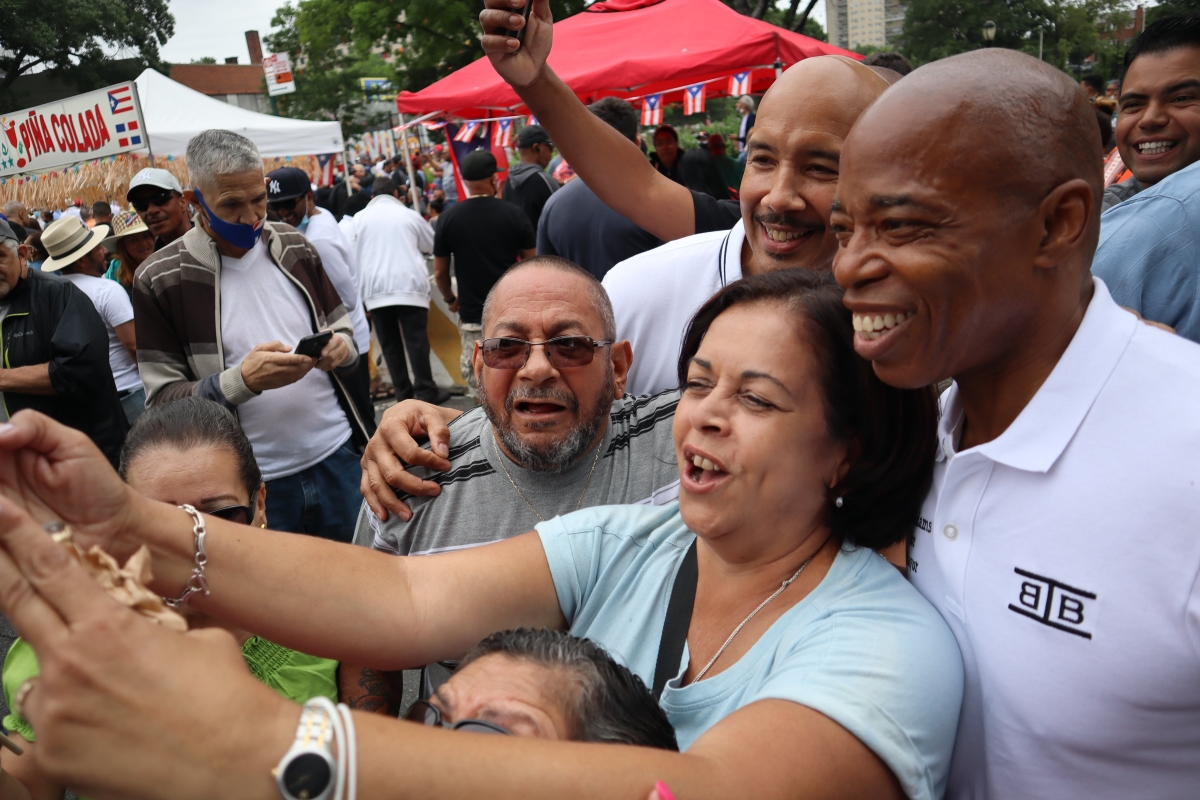The triumph of a moderate Democrat in the mayoral primary in deep blue New York City appears to accelerate a recent trend of some of the party’s most fervent voters breaking away from its most progressive candidates.
Eric Adams, a former New York Police Department captain, this week became his party’s nominee to lead the nation’s largest city after making a centerpiece of his campaign his rejection of left-leaning activists’ calls to defund the police.
Advertisement
“Because there was such an intensity of a reaction on the left to (former President Donald) Trump, many in the political ecosystem mistook that for ideological intensity on the left,” said Jennifer Palmieri, who served as White House communications director for President Barack Obama.
“The same ideological shift on the right — Republicans moving with Trump — did not happen on the left and voters are instead being more pragmatic and less ideological.”
Donald Trump tried vainly to paint Biden as a socialist and tie him to the effort to defund the police that took hold in some quarters of the left after a number of Black people, including George Floyd, were killed by white police officers, setting off protests that rocked some cities.
Biden, long a friend of law enforcement, rejected the “defund the police” call even as he pushed for reforms, but the issue became something of a litmus test for Democratic candidates.
Biden and his staff have taken pride in ignoring a lot of the dialogue on Twitter.
Terry McAuliffe, a moderate Democrat and Clinton ally, won the Virginia gubernatorial primary last month. More moderate Democrats — and even some Republicans in Louisiana’s open primary — backed centrist candidate Troy Carter as he defeated fellow State Sen. Karen Carter Peterson, a more liberal pick.
And Democratic state Rep. Melanie Stansbury easily won a special House election in New Mexico for Interior Secretary Deb Haaland’s old seat.
But while moderate Democrats have racked up recent victories, some triumphant candidates are not so ideologically clear cut .
Adams’ win is the most high-profile notch on the pragmatists’ ledger.
On a number of issues he positioned himself to the right of his rival Democrats, but while he offered a full-throated rejection of defunding the police, his own backstory is more nuanced.
When combined with New York City voters’ tendency to elect mayors with an emphasis on local issues and not ideological purity, it makes drawing national conclusions complicated.
Though known as one of the most liberal cities in the nation, New Yorkers voted for non-Democrats in five straight mayoral elections from 1993-2009, choosing Rudy Giuliani twice and Michael Bloomberg three times.
They cast their ballots with eyes toward crime, education and efforts to rebuild after the 11 September terror attacks.
A rise in shootings as the city emerges from the Covid-19 pandemic helped animate the stretch run of Adams’ campaign as he edged out fellow moderate Kathryn Garcia and liberal Maya Wiley. But his lifetime of speaking out against police misconduct and his blunt, working-class style make it difficult to pigeonhole him.
Adams, 60, made a strong connection with voters in the city’s boroughs outside Manhattan, and he spoke frequently on the campaign trail of being beaten by police officers as a teenager and joining the force to reform it from within.
When Adams spoke to his supporters on primary night, “he said unequivocally ‘Black lives matter,’” noted Christina Greer, a Fordham University political science professor.
“So obviously that’s going to touch a certain segment of the New York population. He then quickly pivots to, ‘but it can’t just be cops and Black people, we have to address Black on Black crime,’” Greer said.
Some Democrats dismiss the notion that the primary results, particularly in New York, signal a move away from progressivism and toward the center in the party’s politics.











